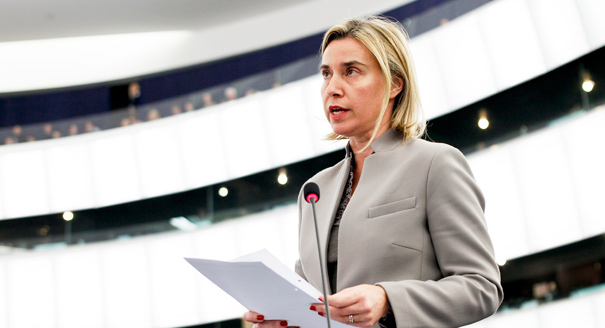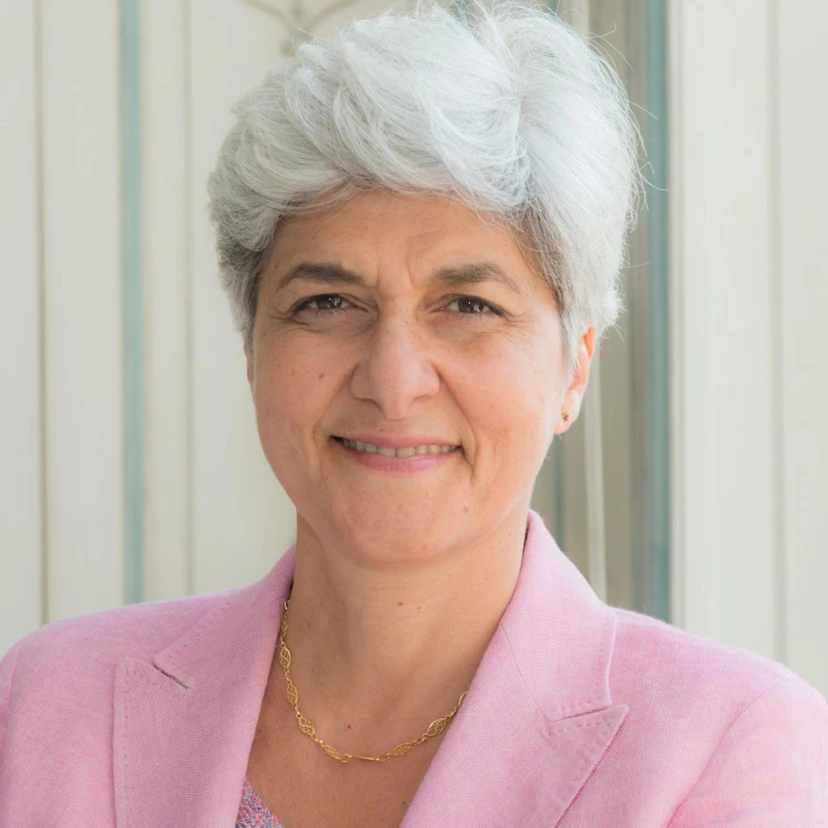Despite considerable challenges, the CPTPP countries and the EU recognize the need for collective action.
Barbara Weisel
{
"authors": [
"Jan Techau"
],
"type": "other",
"centerAffiliationAll": "dc",
"centers": [
"Carnegie Endowment for International Peace",
"Carnegie Europe"
],
"collections": [],
"englishNewsletterAll": "",
"nonEnglishNewsletterAll": "",
"primaryCenter": "Carnegie Europe",
"programAffiliation": "EP",
"programs": [
"Europe"
],
"projects": [],
"regions": [
"Europe",
"Western Europe",
"Iran"
],
"topics": [
"Foreign Policy"
]
}
Source: Getty
One reason for the EU’s foreign policy weakness is its inability to define the starting point of policymaking: the interests of those acting.
Source: European Union Institute for Security Studies
When asked to name the top priority for a new EU Global Strategy on Foreign and Security Policy (EUGS), the temptation is to plunge straight into the everfascinating debates on specific issues and topics. But the weakest link in the production chain of EU foreign policy needs to be addressed before the operational details. Namely, the failure to define the foreign policy interests of the EU.
To many, this will sound dull and esoteric. But one reason for the EU’s foreign policy weakness is its inability to define the very starting point of policymaking: the interests of those acting. And it is not necessary to read Hans Morgenthau or follow the realist school of thought to understand that interests are central to all international politics.
According to Article 22 (1) of the EU Treaty ‘the European Council shall identify the strategic interests and objectives of the Union’ in the realm of EU external action. In theory, the Council is the right institution for this, as it is the member states which are the masters of EU foreign policy. In practice, however, this is precisely why the Council is unable to take a step back, free itself of the member states’ perspectives, and define the interest of the Union as a whole.
To be sure, decisions will ultimately have to be made by the member states. But the definition of the EU’s interests needs to come from elsewhere. This is where the European External Action Service (EEAS) and the new strategy come in.
To exercise leadership in the EU, making these shared interests visible is half the battle. Institutional leadership in the EU can come only from intellectual power, not from the weak bureaucratic competencies enshrined in the treaties.
It will come from generating the best ideas and from offering smart compromises to the 28 member states. It will come from being a strong voice advocating the Union’s common interests.
The EEAS should promote this common position after carefully considering all the national, regional, and sub-regional interests which might exist in the EU, after looking at global expectations and demands, and after assessing, without illusions, the assets and instruments of the European arsenal for pursuing those interests. It should also not view general notions such as democracy, human rights, stability, and sustainability as ends but as starting points to help define strategic and operational goals that can directly lead to tangible outcomes.
Defining the EU’s interests is also part of the EU’s internal power game. This is a good thing, as it fosters competition. Within the EU system, few are better suited to produce such a cohesive document than the High Representative for Foreign Affairs and Security Policy and the EEAS she heads. These are the principal players in the review process and the only ones that will still feel responsible even if the member states choose to forget all about it. The process was never wildly popular in certain national capitals anyway.
The EEAS – despite its many shortcomings, its lack of funding, and its sometimes shaky morale – still boasts enormous in-house expertise. It can also draw on a wealth of information coming from the EU’s 139 delegations and offices around the world. The High Representative and the EEAS should use their unique position to become the voice which offers a clear definition of the EU’s shared interests on a regular basis: the new EUGS should be the starting point for this.
There is a risk that this will not endear the authors of the EUGS to the member states – at least not all of them, especially the larger ones. There will be much criticism, accompanied by accusations that the High Representative and the EEAS lack the mandate to take on such a task. This will have to be endured, especially given that it will most likely come from those who lack viable alternative.
In any case, the EUGS will only be a guiding document, more of a suggestion than an order. But it will be one that is indispensable if Europeans want to finally make progress on crafting a truly European foreign policy.
This article was originally published by the European Union Institute for Security Studies (EUISS).
Carnegie does not take institutional positions on public policy issues; the views represented herein are those of the author(s) and do not necessarily reflect the views of Carnegie, its staff, or its trustees.
Despite considerable challenges, the CPTPP countries and the EU recognize the need for collective action.

Barbara Weisel
France has stopped clinging to notions of being a great power and is embracing the middle power moment. But Emmanuel Macron has his work cut out if he is to secure his country’s global standing before his term in office ends.

Rym Momtaz
How significant are statements by senior U.S. officials about supporting democracy abroad in the context of a foreign policy led by a president focused on near-term transactional interests?


Thomas Carothers, McKenzie Carrier
Despite offering security benefits to candidates and the EU alike, the enlargement agenda appears stalled. Why is progress not being made, and is it time for Europe to rethink its approach?


Sylvie Goulard, Gerald Knaus
Disillusioned with the West over Gaza, Arab countries are not only trading more with Russia; they are also more willing to criticize Kyiv.

Ruslan Suleymanov